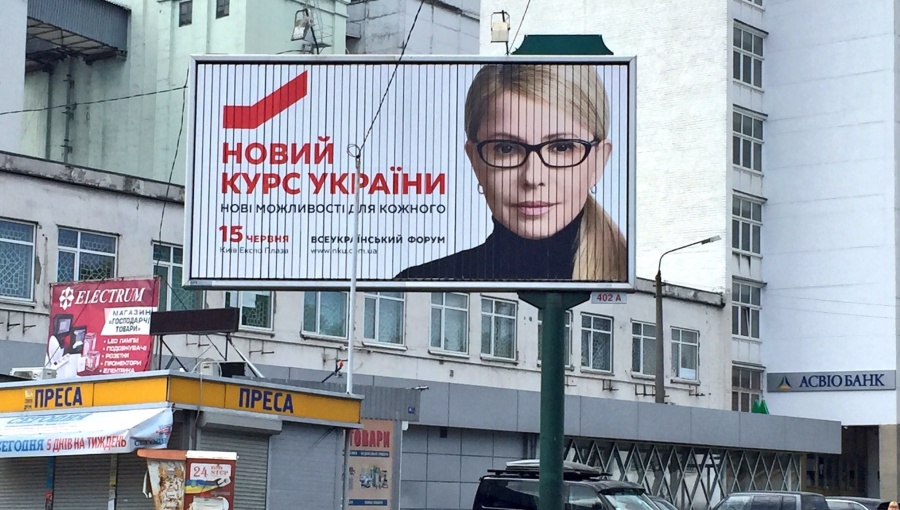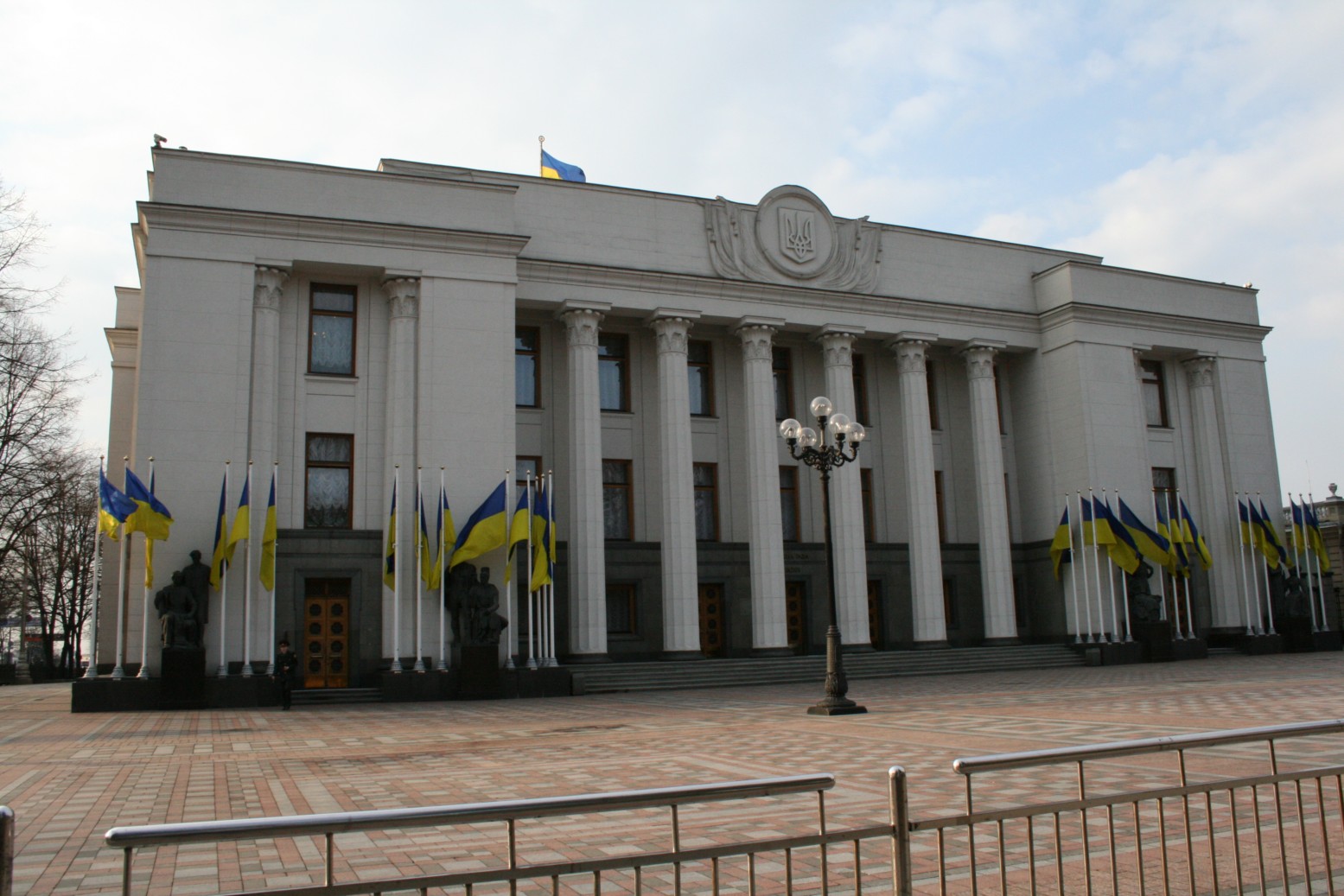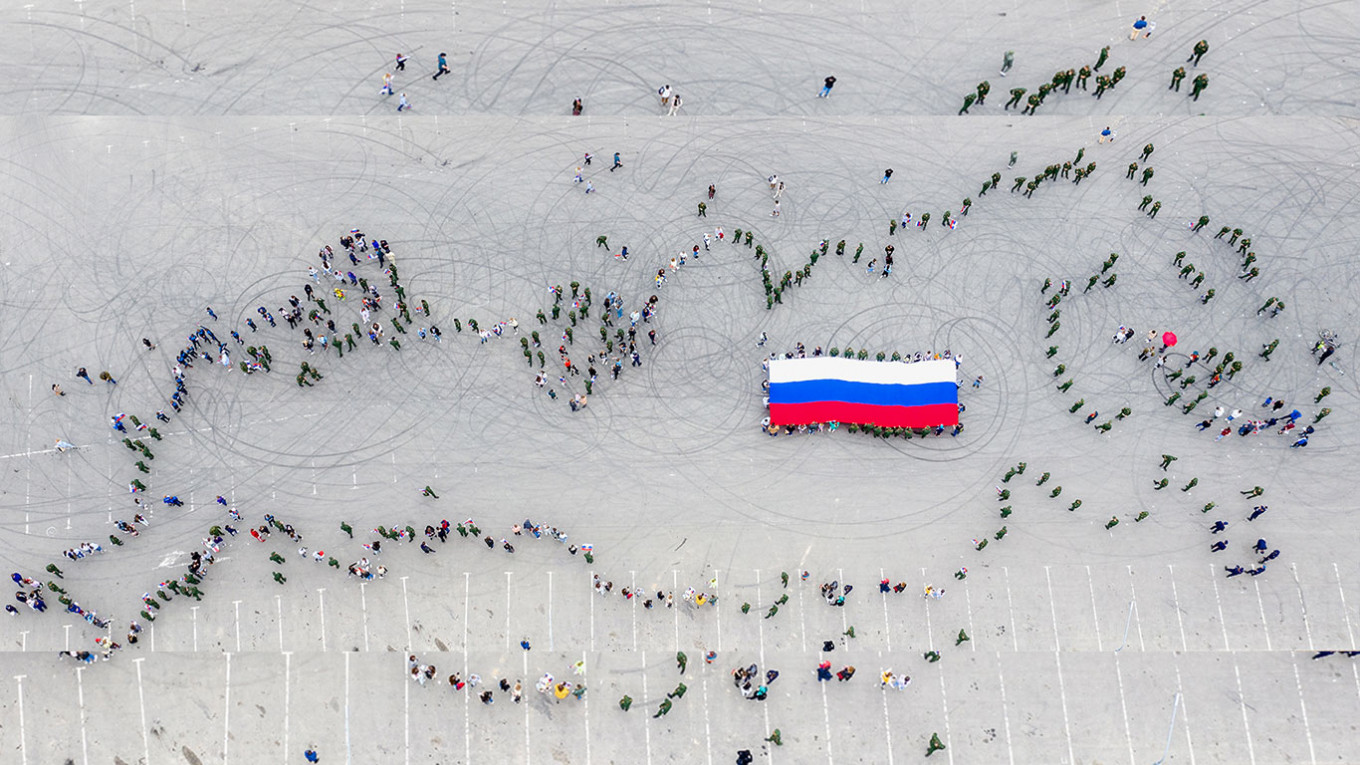
Ukrainians Will Choose Between Poroshenko and Tymoshenko in Presidential Election
Ukrainians Will Choose Between Poroshenko and Tymoshenko in Presidential Election
Five months ahead of presidential elections in Ukraine, sociologists say it is too early to make predictions. Disillusionment with the politicians who came to power as a result of a popular uprising in 2014 and promised change but failed to deliver is high. Therefore, many voters are undecided or even determined not to cast their ballot, according to opinion polls. However, by the logic of local politics, the race will almost certainly be between the incumbent, President Petro Poroshenko, and his rival of many years, Yulia Tymoshenko, a former prime minister (January–September 2005; December 2007–March 2010).
Poroshenko won the election in May 2014 on the promise of bringing peace to Ukraine, which he could not keep given Ukraine’s weakness vis-à-vis Russia, and the West’s insufficient reaction to the Kremlin’s hybrid war methods. Largely as a result of this war, Ukraine under Poroshenko plunged in 2014–2015 into the deepest economic crisis since the early 1990s. The most experienced among his rivals, Tymoshenko, has thus topped opinion polls since at least the first half of 2016. Last summer, Poroshenko even dropped out of the list of top three presidential hopefuls, according to opinion polls. However, the start of active campaigning by his team in August buoyed him up (Kiis.com.ua, September 26; Ratinggroup.ua, September 25).
Poroshenko has swapped camps many times since he entered politics in the late 1990s. He started out as a social democrat. Subsequently, he co-founded the oligarchic Party of Regions, later joined the Orange Revolution camp of then-president Viktor Yushchenko, briefly served in a government formed by the Party of Regions, and finally won the 2014 election apparently as a liberal. If he wins re-election next year, it will be a victory of a nationalist. This may be the best ideological choice for an unpopular president in a country at war with a daunting enemy for more than four years.
The slogan of Poroshenko’s re-election campaign is “Army! Language! Faith!” (Pravda.com.ua, August 30). It essentially sums up his presidency’s achievements. Ukraine’s military has become stronger since 2014, its financing boosted from 1 to 5 percent of GDP, and assistance secured from the United States (Segodnya.ua, August 14, September 15). This month, Ukraine’s parliament, dominated by Poroshenko’s allies, gave preliminary approval to new linguistic legislation that aims to discourage the use of languages other than Ukrainian, in particular in the media (Rada.gov.ua, accessed October 22); and last year, the parliament approved a new education law whose language provisions cost Kyiv problems with Hungary (see EDM, July 17, October 4). As far as faith is concerned, Universal Patriarch of Constantinople Bartholomew, encouraged by Poroshenko, recently moved to grant the Ukrainian Orthodox Church independence from the Moscow Patriarchate (see EDM, July 26, September 13, October 16).
Unlike Poroshenko, Tymoshenko, who came to politics also in the 1990s, has always been a populist in a camp of her own, and she has also almost always been in the opposition. Tymoshenko prefers to react rather than pro-act, and she has been challenging Poroshenko on his weakest issue—the economy—from distinctly populist positions. Tymoshenko has opposed his declared intention to, in line with Kyiv’s agreement with the International Monetary Fund (IMF), allow farmland sales. And she has scathingly criticized the government’s recent decision to increase natural gas prices for households, without which the IMF would have stopped assistance to Ukraine. In her blunt style, Tymoshenko claimed that higher gas tariffs would “benefit the mafia” (Ba.org.ua, October 22). As far as her own policies are concerned, Tymoshenko issued a 400-page text called “The New Economic Course of Ukraine,” which offers little new compared to what Ukrainian governments, including Poroshenko’s, have so far been doing and planning in the economy, plus unrealistic promises (Nku.com.ua, accessed on October 23).
In past elections in Ukraine, one of the two frontrunners was always backed by Moscow. This time, such a candidate would stand no chance. With Crimea annexed by Russia and the most densely populated Russian-oriented areas in Donbas cut off from the rest of Ukraine by Kremlin-backed insurgents, the potentially pro-Russia electorate is now much smaller. Furthermore, this electorate is divided between at least two second-tier presidential hopefuls, including Volodymyr Boyko, the leader of the Opposition Bloc, which was built from the ruins of the Party of Regions, and media mogul Vadym Rabynovych.
Judging by recent opinion polls, Poroshenko and Tymoshenko may be challenged also by Anatoly Hrytsenko, a pro-Western former defense minister who is backed by his wife, the chief editor of the influential newspaper Zerkalo Nedeli, Yulia Mostova. Other somewhat serious contenders include the leader of the populist Radical Party, Oleg Lyashko, who apparently hopes to attract support from Ukraine’s richest businessman, Rinat Akhmetov; the popular mayor of the city of Lviv, Andry Sadovy; and two figures from show business whose views and intentions are not sufficiently clear for the time being, pop star Svyatoslav Vakarchuk and comic Volodymyr Zelensky (Ukraine-elections.com.ua, accessed on October 23).
Vakarchuk served a short stint as a member of parliament, and his father used to be education minister; Zelensky specializes in political satire. But neither of the two has clearly articulated his intentions to run for president. The very fact that Vakarchuk and Zelensky are treated by pollsters as on par with Ukraine’s more traditional political heavyweights suggests the scale of disillusionment within the political class in Ukraine.


